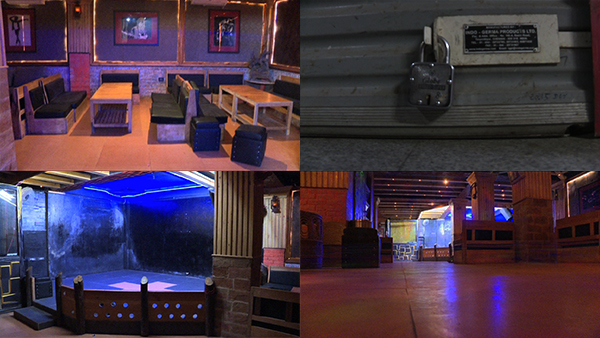 Physical distancing is one of the best measures to prevent the spread of COVID-19, according to experts. And Bhutan embraced this prevention measure seriously. This decision forced the entertainment centres like karaoke, night clubs and Drayangs to close down. Until today, they have not been permitted to open their businesses. And with no certainty as to when the restrictions will be lifted, their sustainability has been put into question.
Physical distancing is one of the best measures to prevent the spread of COVID-19, according to experts. And Bhutan embraced this prevention measure seriously. This decision forced the entertainment centres like karaoke, night clubs and Drayangs to close down. Until today, they have not been permitted to open their businesses. And with no certainty as to when the restrictions will be lifted, their sustainability has been put into question.
Tshering Lhamo’s Karaoke club in Thimphu has been locked for a year now. Without any income, Tshering has had to let go of her workers for now. She says she even had to request her landlord for the rental payments to be made when her business reopens.
To make matters worse, most of her equipment and furniture have been damaged by rats.
All businesses were instructed to close down when the country was hit by the COVID-19 pandemic. Restrictions were eased gradually by the government as businesses were allowed to reopen in stages. But some of the businesses such as places of entertainment like Tshering’s were not allowed to do so. This according to the government is because such places require more close contact to operate and have a higher threat factor.
“I have no source of income now. The only source was this karaoke club. For a woman like me, it has been very difficult. Up until now, my family has been helping me. But I don’t know if they can help me anymore,” said Tshering Lhamo, the owner of Gazom Karaoke in Thimphu.
Tshering has been running this business for the last four years. While she has to pay almost Nu 50,000 as monthly rent, she spent almost Nu 1 M which she borrowed from the bank to develop the club.
Tshering isn’t alone. There are more than 200 karaoke clubs, Drayangs and night clubs across the country.
Having invested huge amounts in the business, owners are now in a dilemma because of the current situation.
“We can’t just close our business and start a new one. Unlike other businesses, we can’t just take all these things and vacate the space. We need to remove everything. And even after doing so, we can’t reuse it. Soundproof is very expensive. It costs us a lot of money to just renovate the space and put soundproofs. We took a loan. It is a little better now that we don’t pay the loan but once the loan payment starts, I am concerned if I will be able to pay it or not,” she added.
Lights have already dimmed on Thimphu’s once-thriving nightlife sector. People from this industry have appealed to the government to either allow them to reopen or to help out with other options.
“There are people who weren’t able to pay the rents and did illegal business. They are behind bars right now. We explained this to the government. Today around 30 or 40 have gathered here. They say that some of them have sold their belongings to pay rents. And some have borrowed money for five or 10 per cent interest,” said Chencho Norbu, a member of the Bhutan Karaoke Association.
“When all other businesses have opened, it is like the problem comes only from us. If we go to a restaurant, there are so many crowds there. If this disease is to spread, the virus will even spread from small shops which open during the day,” said Gyembo, also a member of the Bhutan Karaoke Association.
“When it comes to loans, as we do not have to pay interest it has helped reduce the burden. But as the house rent is very high we are struggling. Some owners have helped with a 50 per cent rent waiver,” said Kencho Dorji, the owner of Highlanders Club.
In Phuentshogling, situations are more or less the same. Chimi runs a hotel and restaurant in the heart of Phuentshogling town. With very few visitors, his hotel business is totally down. His restaurant too remains empty most of the time. Chimi says he is at least grateful to his building owner who waived fifty per cent of the monthly house rents till now.
“People hesitate to come to Phuentshogling because of the 7-day quarantine when going back. Since school has started now, business is a little better. Still, the number of customers is very less. Our earnings don’t even cover the house rent. We have to manage it from other sources,” said Chimi, the owner of Selzang Hotel in Phuentshogling.
Similarly, restaurateurs share the same story.
“Business especially the restaurants down here are going bust. Earlier we used to earn at least Nu 14,000 to 15,000 a day. These days it is difficult to get even Nu 500. The 7-day quarantine while travelling from high risk to low risk has affected our business,” said Dechen Wangmo, a restaurateur in Phuentshogling.
While the nightlife industry and some parts of the business sector are facing a huge hurdle, what seems to be keeping them alive is hope that the COVID-19 pandemic and their problems along with it will soon come to an end.
Samten Dolkar/Sonam Penjor/Kinzang Lhadon







